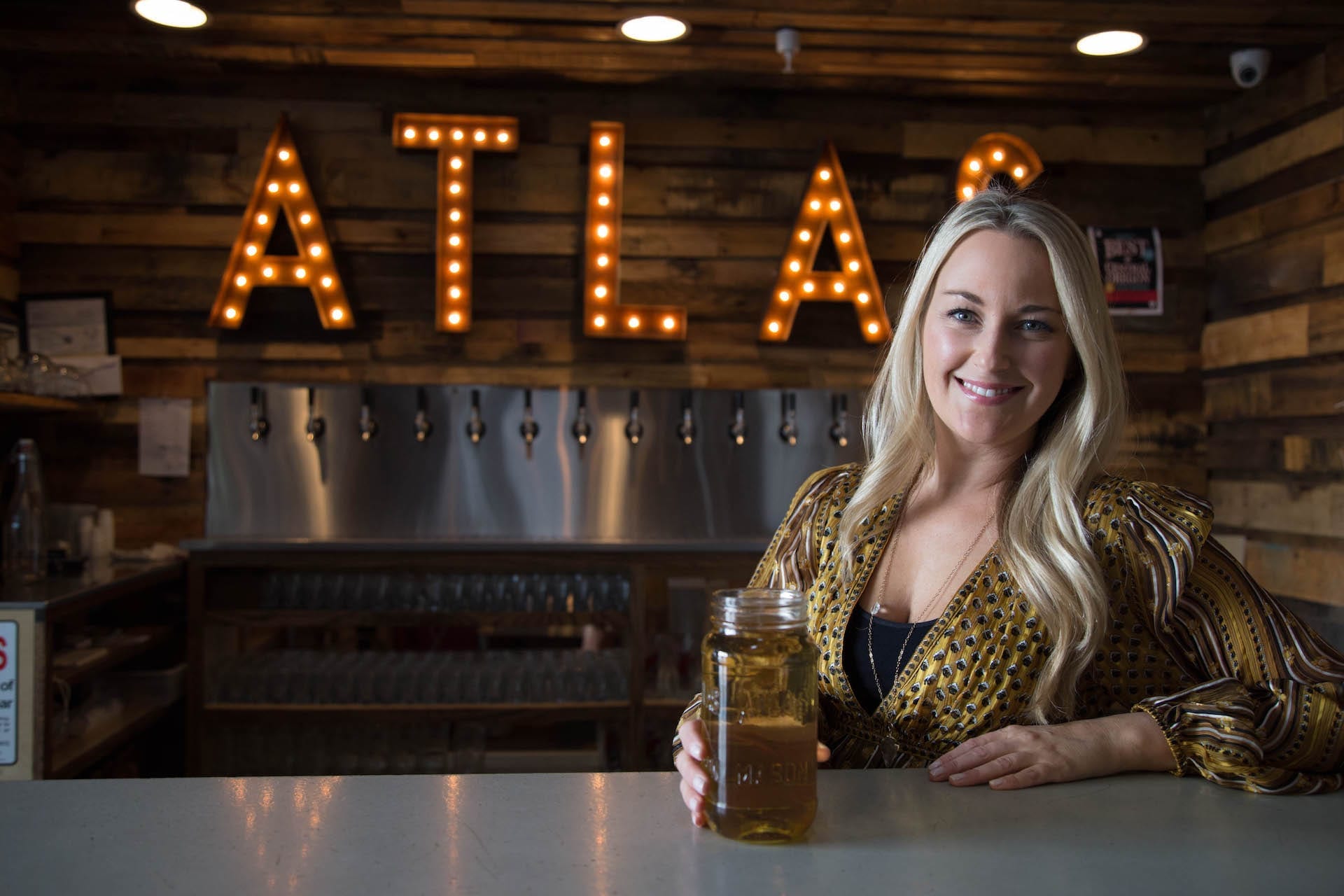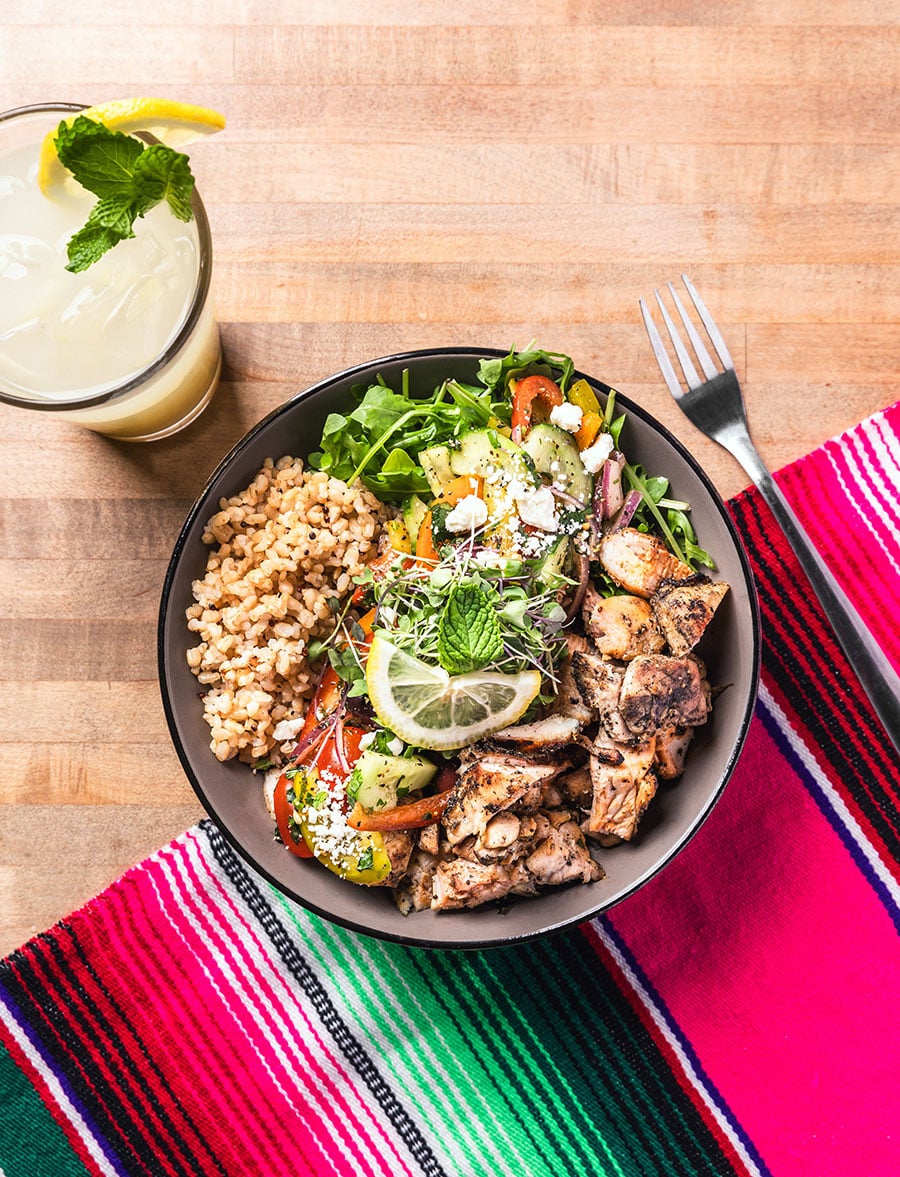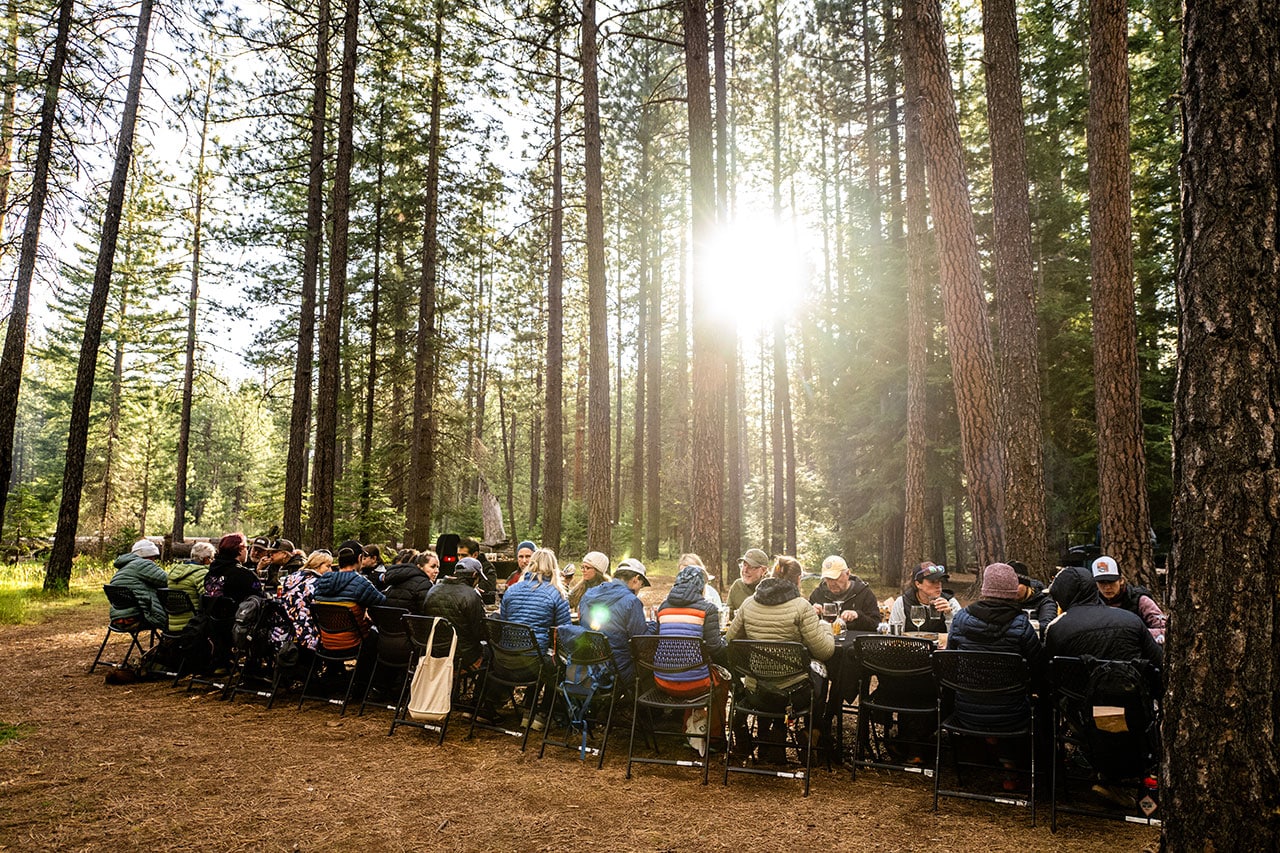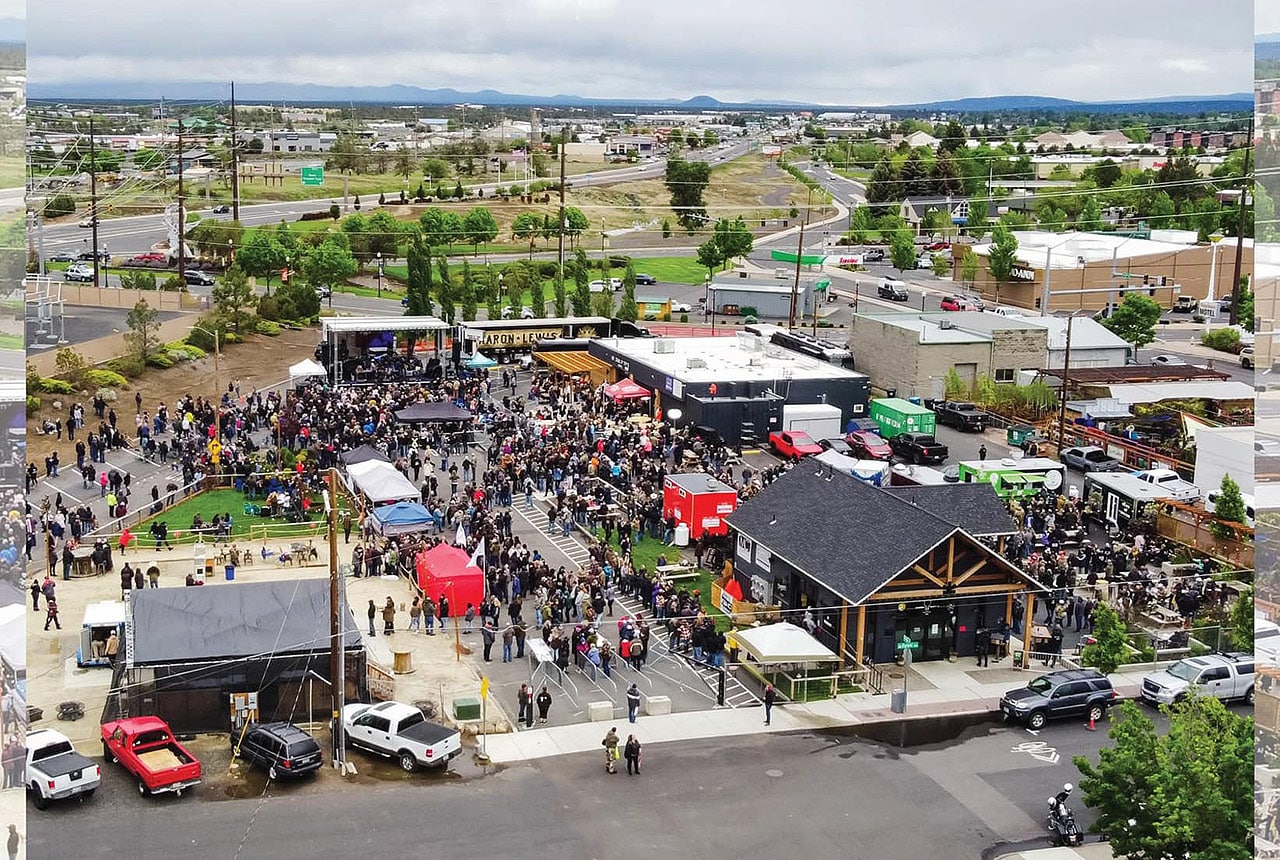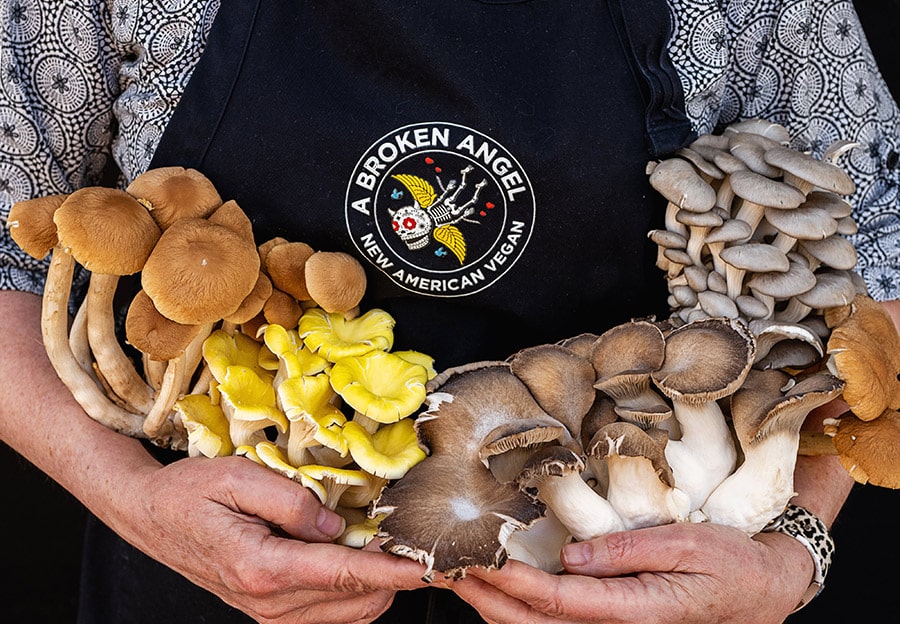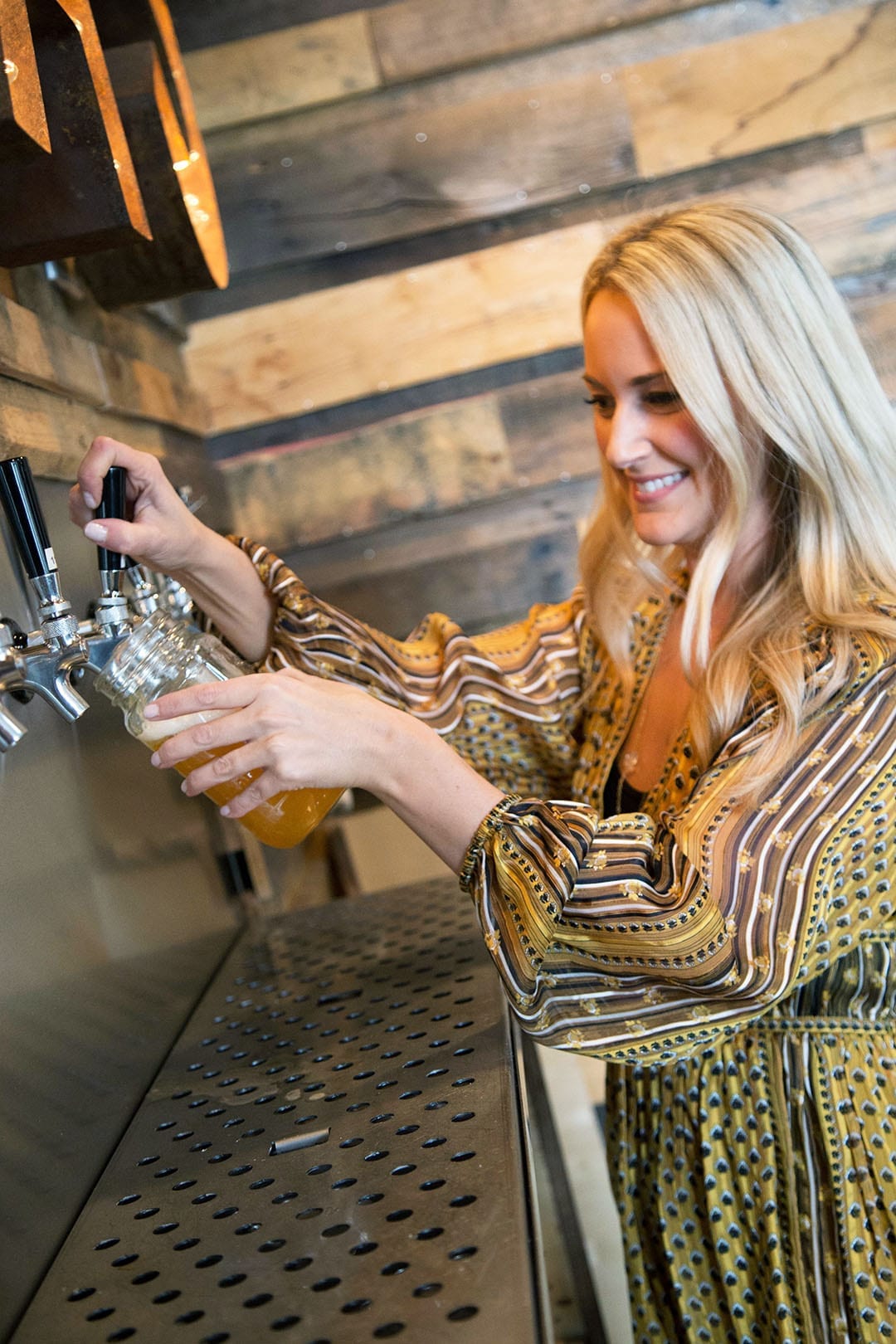
Sam McCoy and her husband, Dan, have grown Atlas Cider from an idea hatched by two teachers to a business expected to produce 7,000 barrels of cider in 2018. Five years in, Sam sat down with us to reflect on the part Atlas has played in the growth of a nascent industry that is upsetting the apple cart in craft-made market share.
It all starts with the apple tree. What are some nuances of using Oregon-grown apples?
The juice has a small carbon footprint—there’s no shipping it across the country or shipping cheap concentrates here from overseas. Cider companies should thrive in apple-growing regions of the country. An interesting challenge with fruit is that each batch we receive from our supplier varies, a factor reminiscent of vintage differences in the wine industry. We can make minor changes to our blends to compensate, we want the fruit to do the talking and embrace the diversity of each batch we produce. This is a major differentiator from making beer or soda pop, where consistency is king. Also, we do not grow our own fruit so we are at the mercy of the often-exorbitant price of the specialty fruits that most of our ciders are made from.
Even though the number of cideries in the U.S. has more than doubled (now 800+) over the past four years, Oregon is one of the few states where cider sales are more than 3 percent the size of beer sales. What shift have you noticed in cider drinking clientele?
People are much more educated about cider in the Northwest now. When we first started sharing our ciders we had to explain what cider was and how it is different from wine and beer. Now we can focus on the things that set our brand apart from others and let people simply taste and form their own opinions.
Cider appears to be the great equalizer, with research showing that market share is fairly equally distributed among men and women (according to international food and beverage market research firm CGA Strategy). This is not the case in the beer and wine industries. Thoughts?
Cider, done right, is the perfect beverage. It all stems from the core of what it is: fruit. Not many would disagree that a fresh bowl of blackberries, apples, apricots, cherries is a wonderful thing. Our cider is at its best is when it is viewed in this way, with no preconceived notions of what it is or what it is supposed to taste like. When we first started I looked at us as the black sheep of Bend beer culture. We still are really proud of that. It can be a more sophisticated choice for the beer drinker, but at the same time it is a more casual choice for the wine drinker.
Cider naysayers tend to poo poo cider for its sweetness, yet some of yours are quite dry. How would you respond, sweetly of course, to these sugary claims?
Cider still has a bit of a problem with the less informed drinkers that have a black-and-white view of it as, “I do or don’t like cider.” Just as a light beer to a triple hopped IPA there is just as much variety, if not more so, in cider. We started the company because we were not impressed with the offerings in the marketplace and we were quite certain we could improve upon it with enough knowledge and the right fruit suppliers.
Atlas was one of the anchor tenants for the revival of the now-thriving Box Factory. You are the first cider partner of the Portland Trail Blazers. What other trends do you plan to set?
Summarized in a quote, “Fine fruit is the most beautiful and useful thing that the world knows.” Cider is about as Northwest as you can get and here in cider country, we are the biggest cider drinkers in the United States. Put simply: drink the fruit that grows here. Over the next few years we look forward to exploring the nature of how and why fruit thrives here. We also want to recognize the people who dedicate their lives to growing fruit and weathering the challenges of each season’s harvest.
Atlas is distributed in Oregon, Washington and Idaho. In Portland, you have a Washington Square taproom and plan to open another in the Pearl District. What percent of your sales comes from your brick and mortars?
Taproom sales make up less than 10 percent of what we sell through traditional channels (bars and supermarkets) but our Oregon taprooms are an important aspect of our brand. We want to give customers a place to experience our cider in an authentic way, to get a sense of who we are in addition to having a few pints. Dollar sales of craft cider were up 39 percent from 2015 to 2016 at off-premise retailers (grocery/convenience stores).
What has surprised you recently about the cider industry?
I see a packaging as a big factor. We started with twenty-two-ounce bottles but we have seen a shift toward customers choosing to buy ciders in cans. It makes perfect sense, especially for sessionable ciders, like ours, that beg to be sipped at any opportunity—not just for a special occasion or with friends. Customers also expect bars to serve it on draft, with many bars now offering multiple handles. Maybe there is something to be said for the phrase, “an apple a day keeps the doctor away.”
What are your top three sellers?
Blackberry has remained our number one selling cider since we released it. We took a risk on making a cider from nontraditional fruits and once we figured it out from a production standpoint we were really able to stand out in the marketplace with a cider that not only tastes delicious but looks the part. Our new dry organic apple and apricot ciders are the next most popular options.
Why are flavored ciders are growing in popularity, up 4 percent from last year off-premise and now representing 16 percent of overall cider sales in the country?
Variety is the spice of life! At our taprooms, our customers flock to our more creative fruit blends. Some of our locals have become cider sommeliers (or pommeliers), perfecting the art of mixing flavors.
How much do you think the newfound cultural awareness of gluten has played into the growth of the industry?
Anything that differentiates cider from beer in a positive way can only help grow the industry. It’s really cool when local breweries sell our cider. It supports what we are doing while giving their customers a gluten-free option so they can enjoy a pint along with their friends.



